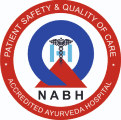



2X Improvement in Psoriasis Lesion Clearance and 2X Relief in Itching
Apollo AyurVAID follows a protocol-driven, evidence-based strategy whereby the focus is on stopping the disease progression, alleviating symptoms, and enhancing quality of life. Psoriasis treatment in Ayurveda addresses the root causes of the condition rather than only its symptoms.
Well defined red patches on the skin with silvery-white scales.
Affected regions will have moderate to severe itching, burning, excess dryness and skin cracking.
Hardening of affected skin with fish-scale-like appearance.
After years of flare-ups and steroid creams, I found lasting relief from psoriasis at Apollo AyurVAID. My skin feels healthy, and the itching is finally gone.
Ayurveda helped me heal from within. The redness and scaling have reduced drastically, and I haven’t had a major flare-up in months